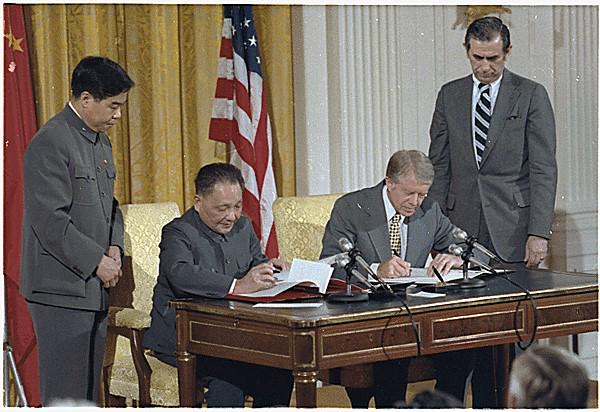Jimmy Carter, a lifelong Baptist and the 39th President of the United States, passed away at the age of 100 on Sunday. He is remembered in China for his pivotal role in establishing diplomatic relations between the two countries. His deep Christian faith also led him to play a significant role in advancing religious freedom in China.
As president from 1977 to 1981, Carter built upon the work of his predecessors to establish full diplomatic relations with the People’s Republic of China. This historic decision ended decades of hostility and laid the foundation for the growing cooperation between the US and China.
After his presidency, Carter continued to play a significant role in US-China relations, making multiple visits to China and meeting with successive Chinese leaders. Former Chinese President Jiang Zemin called him “an old friend of the Chinese people.”
On Monday, Chinese President Xi Jinping expressed his condolences over Carter’s passing, calling him “a promoter and decision-maker for the establishment of China-U.S. diplomatic relations.” On Chinese social media, many users hailed him the “good old man.”
Carter’s legacy in China is deeply intertwined with his Christian faith. Throughout his life, he demonstrated a strong commitment to his beliefs through public witness, missionary work, and nearly 40 years of teaching Sunday school in his hometown church. His faith also played a critical role in advocating for religious freedom in China.
During Deng Xiaoping’s visit to Washington, D.C., in 1979, Carter hosted a banquet for the Chinese delegation. That evening, Deng asked Carter what China could do for him in return for his efforts to improve China-U.S. relations. Carter shared the story of Lottie Moon, a Southern Baptist missionary to China, whom he had admired since childhood for her selfless dedication to the Chinese people, even to the point of sacrificing her own life.
Inspired by her legacy, Carter made three requests: to allow unrestricted worship in China, to permit the distribution of Bibles, and to welcome Christian missionaries back into the country. The following morning, Deng agreed to the first two requests but declined the third.
When Carter visited China in 1981, he witnessed progress in religious freedom, with worship permitted and Bibles distributed.
In 1982, the new Chinese constitution emphasized religious freedom. Between 1980 and 1986, the China Christian Council printed three million copies of the Bible. In 1988, the Amity Foundation, established in 1985, and the United Bible Societies co-founded a printing factory in Nanjing, which became the world’s largest single-site Bible printing enterprise.
In 2006, during the opening of the Bible Ministry Exhibition of the Church in China in Atlanta, Carter attended the ribbon-cutting ceremony. In 2011, at the second China Bible Ministry Exhibition, Carter wrote in his recommendation letter that he deeply thanked God for the development of the Chinese church and prayed for the ministry of CCC&TSPM.
After leaving office, Carter dedicated over 40 years to global peace and humanitarian efforts alongside his wife, Rosalynn. He received the 2002 Nobel Peace Prize for his contributions to resolving international conflicts, promoting democracy and human rights, and fostering economic and social development.
In a statement following his passing, President Joe Biden described Carter as “an extraordinary leader, statesman, and humanitarian.” President-elect Donald Trump also paid tribute to Carter, writing on Truth Social, “He did everything in his power to improve the lives of all Americans.”
Public observances will be held in Atlanta and Washington, D.C., with a private interment planned in Plains, Georgia.












